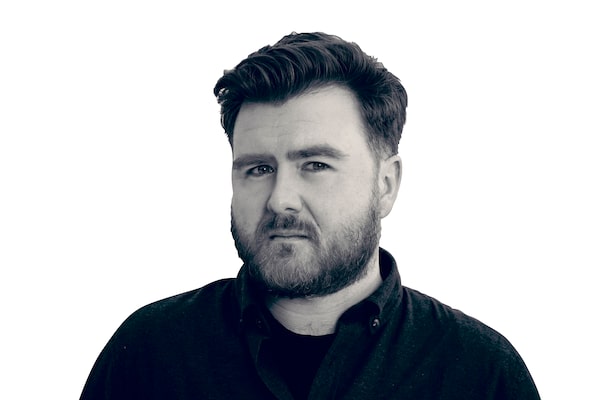
Josh O’Kane, Globe and Mail technology reporter and the author of Sideways: The City Google Couldn’t Buy.The Globe and Mail
I have been thinking a lot about Twitter lately. This is in part because of my obligation as a technology reporter to think about technology companies. But it’s also because, as millions of people keep prematurely announcing Twitter’s death, I have found myself reflecting on how it’s shaped my understanding of the world.
I joined Twitter at 22, and am now uncomfortably gliding into middle age. I effectively grew up on this sometimes stupid, sometimes wonderful, multivehicle pileup of a platform. It was on Twitter that I publicly worked out the details of the allegedly functional adult that I would become, alongside thousands of other Millennial-ish creative types – even as “the discourse” devolved into chaos around us.
It also happened that this was the year I got my spare time back. After slogging through a couple years working on my second book from a tiny, dimly lit room – the “writing cave,” I called it, for the room and pandemic made me feel more gremlin than author – I started to read for pleasure once again.
Finally taking a break from the investigative business non-fiction that dominated my research, I re-emerged at a moment in which the writers I’d watched admiringly on Twitter, or even come up alongside, were using the printed page to investigate their place in the world through memoir.
Having lived in and written books about both Toronto and the Maritimes, I think a lot about regionalism. In this frame, Kate Beaton’s Ducks: Two Years in the Oil Sands is a masterwork. Leaving is woven into the East Coast’s very identity, but Beaton extends that notion in her graphic memoir to show that distance, too, is inexorably part of Canada’s fabric – revealing the real-life consequences of the human isolation required to keep the resource-extraction economy chugging.
The range of experiences that make up Canada runs much deeper than regionalism. The Sudanese-Canadian pundit-writer-broadcaster Elamin Abdelmahmoud, who is probably shaping Canada more these days than it’s shaping him, filters much of the story of finding himself in Kingston through the lens of pop culture in Son of Elsewhere. It is heartbreaking, hilarious, and a defence, maybe, of nu-metal.
And I read Invisible Boy, by Harrison Mooney, in maybe three sittings. The astounding memoir, about the Black Vancouver author’s, uh, terrifying upbringing by adoptive white fundamentalist Christian parents, says more about Canada’s rarely discussed, uh, tendency toward of self-preservation than any official government literature ever will.
Speaking of places where governments cast their countries in a different light than reality: I found Karen Cheung’s The Impossible City, about adjusting to an ever-suffocating Hong Kong she remains deeply in love with, a surprising balm. I read it as I grappled with Toronto pushing out more of the people that make it interesting with each passing day – under much different circumstances, but certainly with parallel themes.
The first book to truly thrill me this year was Rollie Pemberton’s Bedroom Rapper. The Polaris Music Prize-winning artist known as Cadence Weapon is the former poet laureate of Edmonton, an alumni of Montreal’s fabled loft-party scene, and a journalist whose willingness to call out music industry inequities marks a clear-eyed through line in his memoir.
Pemberton unpacks moments of anguish, success, exclusion and elation with equal clarity as he recounts his coming-of-age as a Black kid in Alberta who confronts the racism of Canada’s cultural institutions. The country’s recent explosion of music books largely reinforces a white, rockist hegemony, which does not reflect the great diversity of sounds and voices here; I hope more publishers follow McClelland & Stewart and seek to share stories like Pemberton’s.
I have not read a better distillation of navigating creative life in the post-financial-crisis world, meanwhile, than Emma Healey’s Best Young Woman Job Book. Healey reckons with the ways capitalism has distorted the very markets it’s supposed to make more efficient in ways that also make it increasingly difficult to live out a fulfilling career. It’s a truly Millennial tale – self-aware and clever enough to make you forget the depressing circumstances that shaped it.
The circumstances that shape Twitter, the place where I first encountered all of these writers, are shifting with each passing moment. These days it’s impossible to deny that it’s a marginalizing, confrontational, deeply uncomfortable place. Maybe Twitter won’t stick around forever. Maybe it can’t. Maybe it’s run its course. But I’m glad I came across so many great writers along the way.
Josh O’Kane is the author of Sideways: The City Google Couldn’t Buy (Penguin Random House Canada, 2022)
READ MORE:
The Globe 100: The best books of 2022
Sideways: The City Google Couldn’t Buy is a study of the power and limits of Big Tech
Expand your mind and build your reading list with the Books newsletter. Sign up today.
 Josh O’Kane
Josh O’Kane